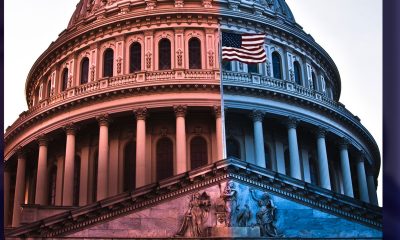Community
D.C. Helps Returning Citizens with READY Assistance
WASHINGTON INFORMER — D.C. Mayor Muriel Bowser has long expressed concern about returning citizens in the District of Columbia
D.C. Mayor Muriel Bowser has long expressed concern about returning citizens in the District of Columbia, going back to her days as a Ward 4 council member.
As mayor, she has made it a point to connect with these District residents and her latest initiative will make sure they will be able to get back into the mainstream of life in the city.
On Feb. 12, the mayor launched the READY (Resources to Empower and Develop You) Center that will serve as a one-stop shop where returning citizens can access critical post-release services, obtain vital documents and get referrals to treatment programs for substance abuse and mental health.
“To give more returning citizens a fair shot, we must continue building strong support systems for men and women transitioning back into the community,” the mayor said. “By partnering with community-based organizations and working across D.C. government agencies, we can set more residents up for success by providing more immediate access to employment, housing, educational opportunities, health care and more.”
The READY Center sits behind the Correctional Treatment Facility located at 1901 E Street SE.
MORCA (Mayor’s Office of Returning Citizen Affairs) and the departments of corrections, behavioral health, human services, employment services, motor vehicles and community-based organizations work as partners to coordinate the activities of the READY Center.
There are approximately 60,000 returning citizens living in the District and from 2,000 to 8,000 come back to the city after serving their time.
Many years ago, a returning citizen would come back to the District from Lorton or from another federal facility and it would be on them to get back on their feet to become a productive member of society. The District had churches and some community organizations to help returning citizens but hardly any program from the city government until Marion Barry became mayor in 1979.
Barry worked to reduce recidivism during his years as mayor and energized the city’s programs to serve returning citizens.
With the advent of the READY Center, an incarcerated District resident will fill out an interest card 30 days prior to their release. When they are in the city, they will visit the READY Center and the staff will connect them with its partners for further action.
All follow-up visits will take place at the agencies tasked with helping the returning citizens. Brian Ferguson, the director of MORCA, expressed satisfaction with the program.
“This marks a significant milestone in the District’s already nationally recognized re-entry services, as several core service agencies collaborate to ensure that the men and women leaving the jail are given direct access to the essential resources needed to create successful transitions back into society,” Ferguson said.
Quincy Booth, the director of corrections, said the re-entry process “begins the day of admittance into our facilities.”
“We want them to leave with a plan,” Booth said. “This approach helps us to reduce recidivism.”
Dr. Unique Morris-Hughes, director of the city’s employment services department, embraces the READY Center saying “investing in our returning citizen population is a win-win proposition that benefits our residents and impacts our neighborhoods and communities.”
Deborah Rowe, executive director of Returning Citizens United, said the READY Center has a strong mission to fulfill.
“The Bowser administration has assembled a good team and this will be good for people coming home from being incarcerated,” she said.
Rowe said returning citizens, especially those without strong family ties, will need assistance getting health benefits, a mailing address, social and wraparound services and identification cards.
“Some haven’t been in D.C. for years and they need to adjust to the changes in the city,” she said. “Some have been gone just a few years and need to get back on the right track to being good citizens.”
Rowe said she travels to federal facilities to counsel District inmates on what’s available to them once they get back to the city. She finds the proactive approach prepares the inmate for some of the challenges that lie ahead when they get their freedom.
“There are very few cities that do what we do here in Washington,” she noted.
Eric Weaver, who serves as the chairman of the National Association of Returning Citizens, said the center can help returning citizens better manage issues that residents deal with.
“Let’s look at the Department of Motor Vehicles,” Weaver said. “When a returning citizen goes into the office to get an identification and they look at the long line they may say ‘I’ll come back tomorrow’ and will come back the next day and get discouraged again. The READY Center can help them through that particular process and eliminate the barriers with that and other things and then they are on their way to becoming productive citizens.”
This article originally appeared in the Washington Informer.
#NNPA BlackPress
Fighting to Keep Blackness
BlackPressUSA NEWSWIRE — Trump supporters have introduced another bill to take down the bright yellow letters of Black Lives Matter Plaza in Washington, D.C., in exchange for the name Liberty Plaza. D.C.
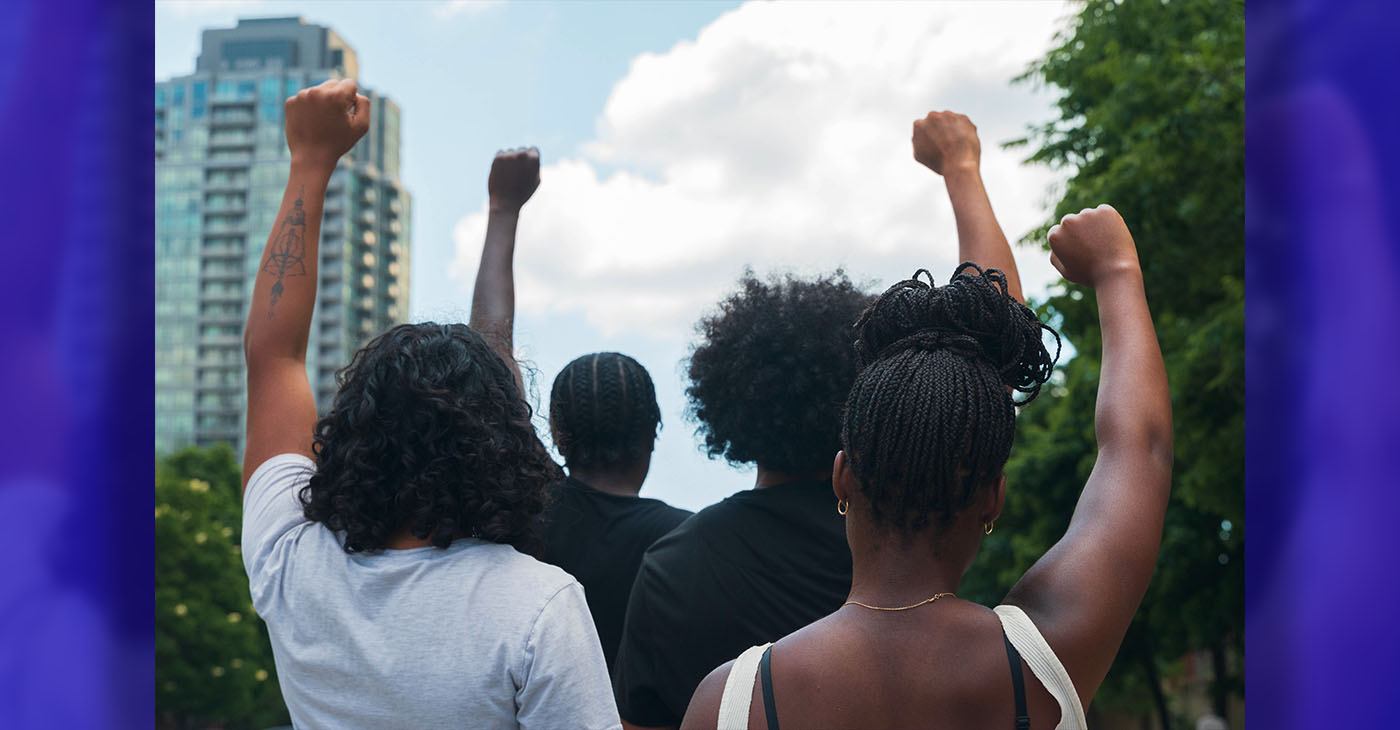
By April Ryan
As this nation observes the 60th anniversary of Bloody Sunday in Selma, Alabama, the words of President Trump reverberate. “This country will be WOKE no longer”, an emboldened Trump offered during his speech to a joint session of Congress Tuesday night. Since then, Alabama Congresswoman Terri Sewell posted on the social media platform formerly known as Twitter this morning that “Elon Musk and his DOGE bros have ordered GSA to sell off the site of the historic Freedom Riders Museum in Montgomery.” Her post of little words went on to say, “This is outrageous and we will not let it stand! I am demanding an immediate reversal. Our civil rights history is not for sale!” DOGE trying to sell Freedom Rider Museum
Also, in the news today, the Associated Press is reporting they have a file of names and descriptions of more than 26,000 military images flagged for removal because of connections to women, minorities, culture, or DEI. In more attempts to downplay Blackness, a word that is interchanged with woke, Trump supporters have introduced another bill to take down the bright yellow letters of Black Lives Matter Plaza in Washington, D.C., in exchange for the name Liberty Plaza. D.C. Mayor Morial Bowser is allowing the name change to keep millions of federal dollars flowing there. Black Lives Matter Plaza was named in 2020 after a tense exchange between President Trump and George Floyd protesters in front of the White House. There are more reports about cuts to equity initiatives that impact HBCU students. Programs that recruited top HBCU students into the military and the pipeline for Department of Defense contracts have been canceled.
Meanwhile, Democrats are pushing back against this second-term Trump administration’s anti-DEI and Anti-woke message. In the wake of the 60th anniversary of Bloody Sunday in Selma, several Congressional Black Caucus leaders are reintroducing the Voting Rights Act. South Carolina Democratic Congressman James Clyburn and Alabama Congresswoman Terry Sewell are sponsoring H.R. 14, the John Lewis Voting Rights Advancement Act. Six decades ago, Lewis was hit with a billy club by police as he marched for the right to vote for African Americans. The right for Black people to vote became law with the 1965 Voting Rights Act that has since been gutted, leaving the nation to vote without the full protections of the Voting Rights Act. Reflecting on the late Congressman Lewis, March 1, 2020, a few months before his death, Lewis said, “We need more than ever in these times many more someones to make good trouble- to make their own dent in the wall of injustice.”
Activism
Oakland Post: Week of March 5 – 11, 2025
The printed Weekly Edition of the Oakland Post: Week of March 5 – 11, 2025
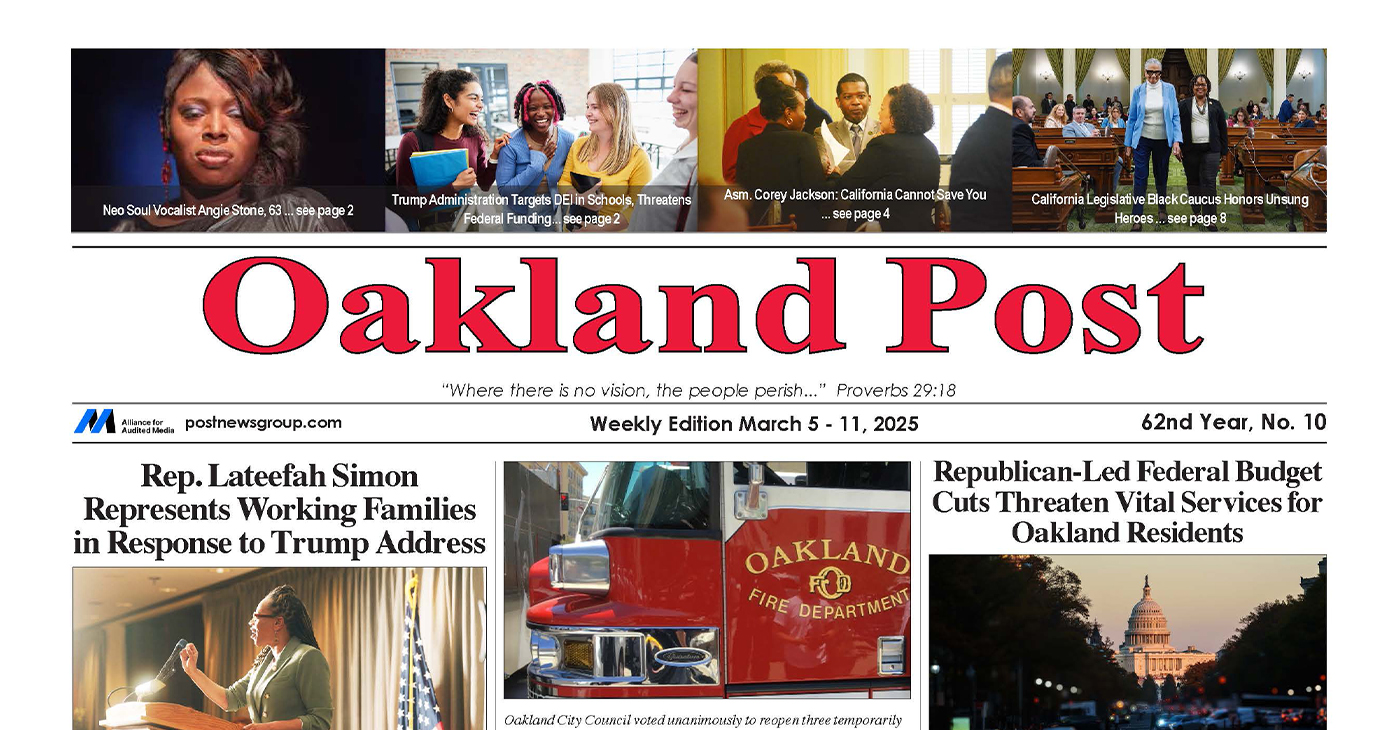
To enlarge your view of this issue, use the slider, magnifying glass icon or full page icon in the lower right corner of the browser window.
#NNPA BlackPress
Rep. Al Green is Censured by The U.S. House After Protesting Trump on Medicaid
BLACKPRESSUSA NEWSWIRE — His censure featured no hearing at the House Ethics Committee and his punishment was put on the floor for a vote by the Republican controlled House less than 72 hours after the infraction in question.
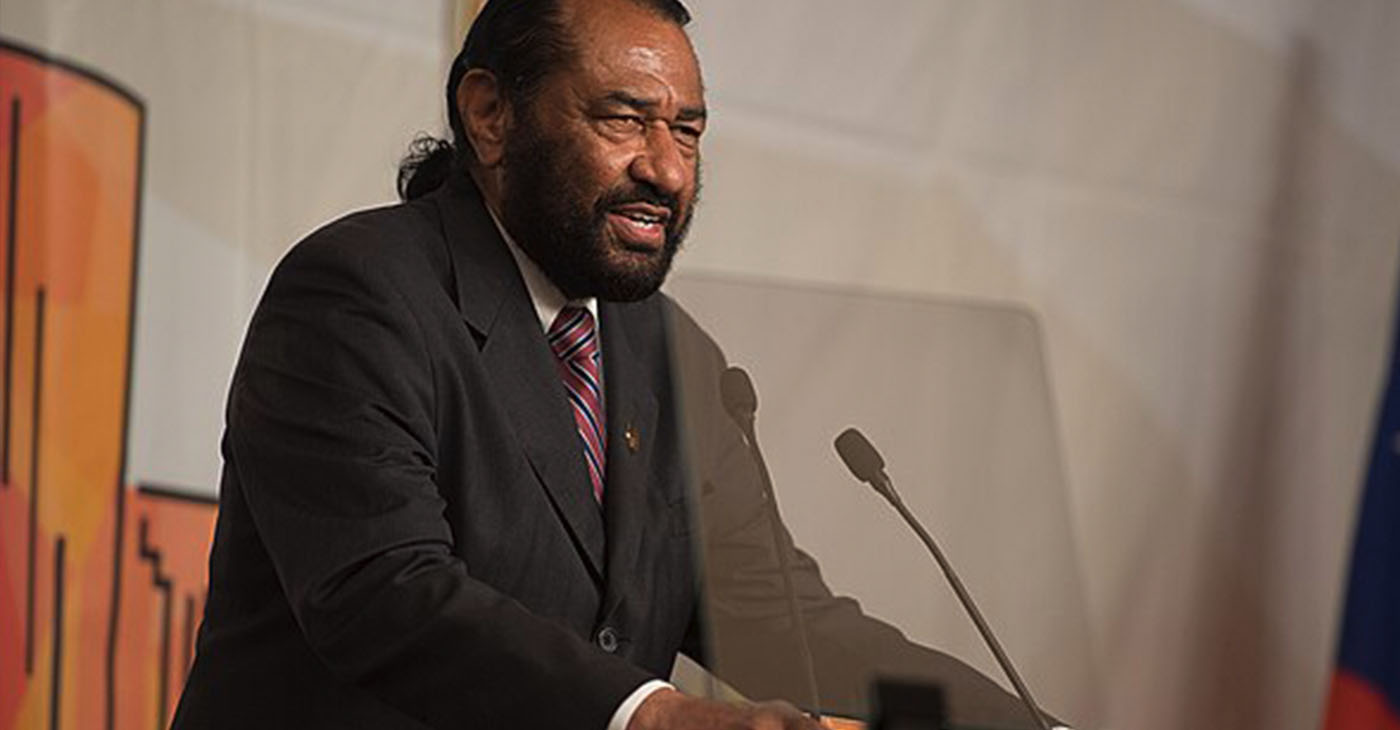
By Lauren Burke
In one of the quickest punishments of a member of the U.S. House of Representatives in the modern era, Congressman Al Green (D-TX) was censured by a 224-198 vote today in the House. His censure featured no hearing at the House Ethics Committee and his punishment was put on the floor for a vote by the Republican controlled House less than 72 hours after the infraction in question. Of the last three censures of members of the U.S. House, two have been members of the Congressional Black Caucus under GOP control. In 2023, Rep. Jamal Bowman was censured.
On the night of March 4, as President Trump delivered a Joint Address to Congress, Rep. Green interrupted him twice. Rep. Green shouted, “You don’t have a mandate to cut Medicare, and you need to raise the cap on social security,” to President Trump. In another rare event, Rep. Green was escorted off the House floor by security shortly after yelling at the President by order of GOP House Speaker Mike Johnson. Over the last four years, members of Congress have yelled at President Biden during the State of the Union. Georgia Republican Marjorie Taylor-Greene was joined by Republican Rep. Lauren Bobert (R-CO) in 2022 in yelling at President Biden. In 2023, Rep. Greene, Rep. Bob Good (R-VA), and Rep. Lisa McClain (R-MI) yelled at Biden, interrupting his speech. In 2024, wearing a red MAGA hat, a violation of the rules of the U.S. House, Greene interrupted Biden again. She was never censured for her behavior. Rep. Green voted “present” on his censure and was joined by freshman Democrat Congressman Shomari Figures of Alabama who also voted “present”.
All other members of the Congressional Black Caucus voted against censuring Green. Republicans hold a four-seat advantage in the U.S. House after the death of Texas Democrat and former Houston Mayor Sylvester Turner yesterday. Ten Democrats voted along with Republicans to censure Rep. Green, including Rep. Jim Himes of Connecticut, who is in the leadership as the senior Democrat on the House Intelligence Committee. “I respect them but, I would do it again,” and “it is a matter of conscience,” Rep. Green told Black Press USA’s April Ryan in an exclusive interview on March 5. After the vote, a group of Democrats sang “We Shall Overcome” in the well at the front of the House chamber. Several Republican members attempted to shout down the singing. House Speaker Mike Johnson gaveled the House out of session and into a recess. During the brief recess members moved back to their seats and out of the well of the House. Shortly after the vote to censor Rep. Green, Republican Congressman Andy Ogles of Tennessee quickly filed legislation to punish members who participated in the singing of “We Shall Overcome.” Earlier this year, Rep. Ogles filed legislation to allow President Donald Trump to serve a third term, which is currently unconstitutional. As the debate started, the stock market dove down over one-point hours from close. The jobs report will be made public tomorrow.
-

 #NNPA BlackPress2 weeks ago
#NNPA BlackPress2 weeks agoTarget Takes a Hit: $12.4 Billion Wiped Out as Boycotts Grow
-

 Activism3 weeks ago
Activism3 weeks agoU.S. House Minority Leader Hakeem Jeffries and Rep. Lateefah Simon to Speak at Elihu Harris Lecture Series
-

 Alameda County3 weeks ago
Alameda County3 weeks agoAfter Years of Working Remotely, Oakland Requires All City Employees to Return to Office by April 7
-

 Activism3 weeks ago
Activism3 weeks agoActor, Philanthropist Blair Underwood Visits Bay Area, Kicks Off Literacy Program in ‘New Oakland’ Initiative
-

 Activism4 weeks ago
Activism4 weeks agoLawsuit Accuses UC Schools of Giving Preference to Black and Hispanic Students
-

 Alameda County4 weeks ago
Alameda County4 weeks agoLee Releases Strong Statement on Integrity and Ethics in Government
-

 Activism3 weeks ago
Activism3 weeks agoRetired Bay Area Journalist Finds Success in Paris with Black History Tours
-
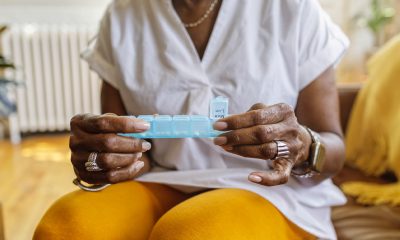
 Activism4 weeks ago
Activism4 weeks agoTwo New California Bills Are Aiming to Lower Your Prescription Drug Costs







